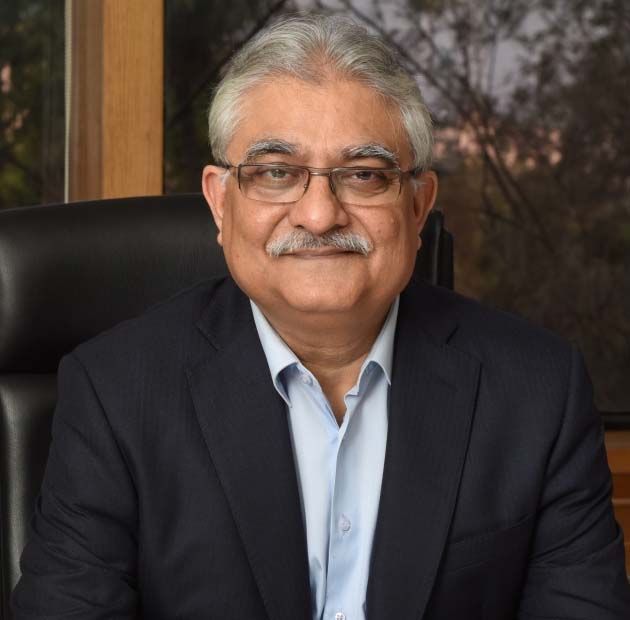
Ministers laud its all-round efforts; sector seeks lower,
uniform GST rate, incentive-based scrappage policy
Union Minister of Environment, Forest & Climate Change, I&B and Heavy Industries & Public Enterprises, Mr Prakash Javadekar, assured the automobile industry of support from the Government in reviving demand, while his Cabinet colleague, Mr Nitin Jairam Gadkari, Union Minister of Road Transport & Highways and MSME, expressed happiness that the “Industry has come to global standards on many regulatory fronts.
Praising the automobile industry’s resilience, adaptability and innovation potential, Union Minister of Commerce & Industry and Railways, Mr Piyush Goyal, said, that in order to produce world-class export-fit products indigenously, “we need to build global scale plants in the auto sector that are at par with international standards.”
The minsters were speaking at the 60th Annual Convention of the Society of Indian Automobile Manufacturers, on September 4.
Amid multipronged COVID-19 challenges, SIAM held the convention, titled ‘Rebuilding the Nation, Responsibly’, with a series of virtual plenary sessions deliberating upon the revival and future of the automotive industry.
Putting across recommendations to the Government towards boosting demand in the automobile sector, Mr. Rajan Wadhera, President, SIAM & Senior Advisor, Mahindra & Mahindra, said, “We thank the Government for all the support it has extended to the auto sector, such as reduction in the repo rates, credit access etc. We now need more specific steps to boost demand in the sector, as the festive season is fast approaching.”
Some of the steps he listed in this regard were lowering of GST rates from 28 to 18 per cent across all vehicle categories and automotive components, an incentive-based vehicle scrappage policy and concrete steps towards realising the vision of the Automotive Mission Plan.
Reassuring the automobile industry, Mr Javadekar, said, “Infrastructure is the only answer to the growth story of India and the Government is looking at investing 100 lakh crore towards infrastructure projects over the coming times. This will also hugely benefit the automobile industry.”
Acknowledging the auto industry’s recommendation for reduction in GST rates, he said, the “GST reduction will ultimately benefit the Government and I will be taking it up with the Finance Minister and Prime Minister’s office. He also assured that a well-entrenched vehicle scrappage policy will come soon.
Mr. Uday Kotak, President, CII and Managing Director & CEO, Kotak Mahindra Bank, said, “As the festival season is approaching, we expect to see an increase in demand. Therefore, it is now imperative for us to ease out the supply chain bottlenecks. Money is aplenty, banks are ready, willing and eager to extend easy loans and financing option. We need to make sure that OEMs do not face any supply side disruptions”.
Mr. Kenichi Ayukawa, President-Elect, SIAM and Managing Director and CEO, Maruti Suzuki India, said, “The industry is looking forward to sound development which means, increase in production, sales, exports and more localization of parts including electronics. It means self-reliant i.e. Atmanirbhar Bharat”.
At the plenary session on ‘A Long Term Regulatory Roadmap and Infrastructure Development’ Mr Gadkari said, “We uphold the need for long-term regulatory roadmap and infrastructure development for the benefit of automobile industry. It is time the country also focuses on alternative biofuel technologies such as that of ethanol, methanol, LNG, and so on.”
He also recommended the SIAM and the industry should create an independent think-tank of retired industry, legal, policy, and government experts to resolve industry challenges.
Speaking at the session, Mr Vikram Kirloskar, Past President, SIAM & Vice-Chairman, Toyota Kirloskar Motor, said “Over the past year, the industry has made tremendous investments in upgrading to BS-VI and various technological pathways and we have lost much of our cash reserve. The impact of the recent pandemic on the industry is unprecedented. We need to pause and revisit our options with regard to impending regulations.”
Thanking the guests and dignitaries, Mr Vinod Aggarwal, Treasurer, SIAM & Managing Director and CEO, VE Commercial Vehicles, said, “We depend heavily on infrastructure development and economic growth especially for the growth of CV sector. We welcome the change in definition of MSMEs which has increased viability of suppliers in the business. It is our request to the Government to consider including wholesale and retail trade and repair of motor vehicles and motorcycles in the MSMED Act, which will benefit our dealers and make vehicle retail business viable.”
During the convention, the panelists spoke about possible ways that can help in fostering increased localisation in the automobile sector, improve ease-of-doing business scenario in the country and the steps that are to be undertaken to create ‘Brand India’, so as to harness the country’s export potential. They deliberated on viable pathways which will lay the ground work for a truly Atmanirbhar automotive sector.
Applauding the Government’s Atmanirbhar Bharat mission, Dr. Pawan Goenka, Past President, SIAM and Managing Director, Mahindra & Mahindra, said, “The auto-Industry today is a shining example of Atmanirbhar Bharat. Apart from the last year, the sector has been growing at 16 pc CAGR over the last 25 years and that is truly an impressive number to reckon with. The sector has made sizeable investments in R&D and currently employs around 37 million people in the entire value chain.
Talking of global-scale plants, Union Minister Mr Goyal said, “We should aim at improving the scale and quality of what we are producing and export it to the rest of the world. The key is to create a sustainable value chain.” From the demand perspective, Mr. Goyal, commented, “In the COVID- 19 era, we have seen the demand for shared mobility fizzing away, which was once the talk of the town. Current trends indicate that people will continue to buy cars, try out self-drive, autonomous and EVs, and therefore, as a corollary, the automobile sector’s health would eventually improve. We are a listening Government and we will continue to do all that we can to help the auto-industry.









